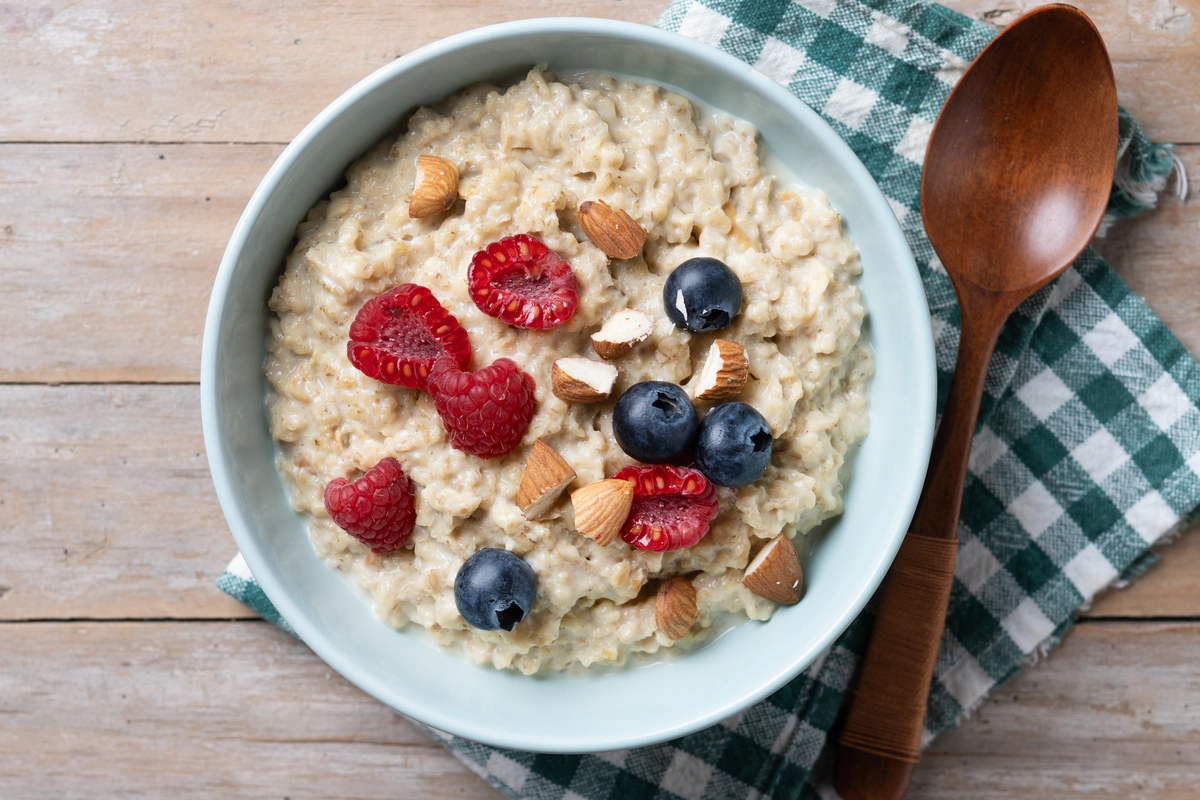Introduction
In recent years, the popularity of gluten-free diets has surged, with many individuals opting to remove gluten from their daily meals due to health concerns such as celiac disease or gluten sensitivity. A common question among those embracing this lifestyle is: does oatmeal have gluten? This article will explore whether oats are naturally gluten-free, the risks of cross-contamination, and how to safely include oatmeal in a gluten-free diet.
What is Gluten?
Gluten is a protein found in several grains, including wheat, barley, and rye. It’s responsible for the elastic texture of dough, allowing it to rise and maintain its shape. For most people, consuming gluten poses no issues. However, those with celiac disease experience an autoimmune reaction when ingesting gluten, leading to inflammation and damage in the small intestine. Others may have non-celiac gluten sensitivity, which causes discomfort but does not involve an autoimmune response.
Are Oats Naturally Gluten-Free?
Oats are naturally free from gluten, containing a protein called avenin instead. Avenin is different from gluten and does not usually cause problems for people with celiac disease. However, issues arise from how oats are handled and processed. According to research shared by Bob’s Red Mill, oats are often grown near wheat, barley, or rye, leading to potential cross-contamination. This can happen during harvesting, processing, or packaging, resulting in trace amounts of gluten in products labeled as oats.
For a detailed look into how common breakfast items might impact a gluten-free diet, you might also explore the information on what gluten-free pancakes are made of, highlighting the importance of understanding ingredients and food preparation.
Cross-Contamination: A Real Concern
The main reason oats might contain gluten is due to cross-contamination. Even if oats are grown separately, the use of shared equipment or facilities with gluten-containing grains can introduce gluten into oat products. The Celiac Disease Foundation emphasizes the importance of using oats that are specifically labeled as certified gluten-free. These oats are processed in dedicated gluten-free facilities, reducing the risk of contamination.
Key Points on Cross-Contamination:
- Oats can become contaminated with gluten through shared equipment.
- Cross-contamination often occurs during processing, packaging, or transportation.
- Certified gluten-free oats are handled in a way that prevents contamination.
Certified Gluten-Free Oats: Safe for Consumption
To safely consume oats on a gluten-free diet, it is crucial to choose certified gluten-free oats. These oats are grown, processed, and packaged in environments where contamination with gluten-containing grains is strictly controlled. Brands like Bob’s Red Mill and Thrive Market offer certified gluten-free oatmeal that meets these standards.
How to Identify Certified Gluten-Free Oats:
- Look for certification marks from reputable organizations such as the Gluten-Free Certification Organization (GFCO).
- Read product labels carefully to ensure they state “gluten-free” and mention specific testing protocols.
- Avoid oats that do not have a gluten-free certification, even if they are labeled as “wheat-free” or “pure oats.”
The Avenin Debate: Are All Oats Safe?
While certified gluten-free oats are generally safe for most individuals with celiac disease or gluten sensitivity, a small percentage of people may still react to oats due to the presence of avenin. Avenin is similar to gluten and can cause an immune response in sensitive individuals. This reaction, however, is rare, and ongoing research aims to better understand why some people with celiac disease might react to oats.
Labeling and Regulations: What to Look For
Understanding food labels is essential for maintaining a strict gluten-free diet. In the United States, the FDA allows products labeled as gluten-free to contain less than 20 parts per million (ppm) of gluten. This standard is generally considered safe for individuals with celiac disease. When choosing oatmeal, look for packaging that clearly states “gluten-free” and includes certification from organizations like the GFCO.
For more insights into gluten-free eating, check out this guide on gluten-free dinner recipes, which provides a variety of meal options that cater to those avoiding gluten.
Preparing Oatmeal in a Gluten-Free Kitchen
To further reduce the risk of cross-contamination, it’s essential to prepare oatmeal in a gluten-free environment:
- Use dedicated kitchen tools and cookware for gluten-free cooking.
- Store gluten-free oats separately from other grains.
- Clean surfaces and utensils thoroughly before preparing gluten-free meals.
Popular Brands Offering Certified Gluten-Free Oatmeal
- Bob’s Red Mill: Offers a wide range of certified gluten-free oat products.
- Quaker Oats: Provides gluten-free oatmeal options.
- Thrive Market: Features a selection of certified gluten-free oatmeal.
FAQs
Does all oatmeal have gluten?
- No, oats are naturally gluten-free, but they can be contaminated with gluten.
Can people with celiac disease eat oatmeal?
- Yes, as long as it is certified gluten-free to avoid cross-contamination.
What is the difference between regular oats and gluten-free oats?
- Regular oats may be contaminated with gluten, whereas gluten-free oats are handled to prevent contamination.
How do I know if oatmeal is gluten-free?
- Look for certification marks indicating the product has been tested and is gluten-free.
Are there health benefits to eating gluten-free oats?
- Yes, oats are rich in fiber, vitamins, and minerals that support a healthy diet.
Conclusion
In conclusion, while oats themselves do not contain gluten, the potential for cross-contamination makes it essential for those with celiac disease or gluten sensitivity to choose certified gluten-free oats. By doing so, they can enjoy the nutritional benefits of oats without risking their health. Always check labels, opt for certified products, and be mindful of cross-contamination to maintain a safe and healthy gluten-free diet.

